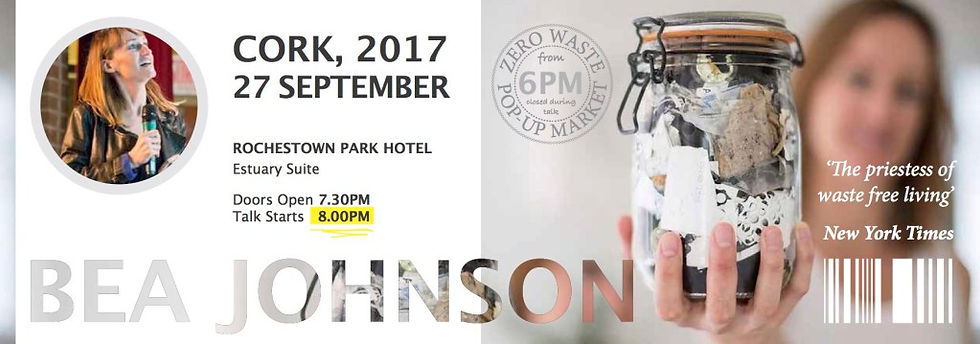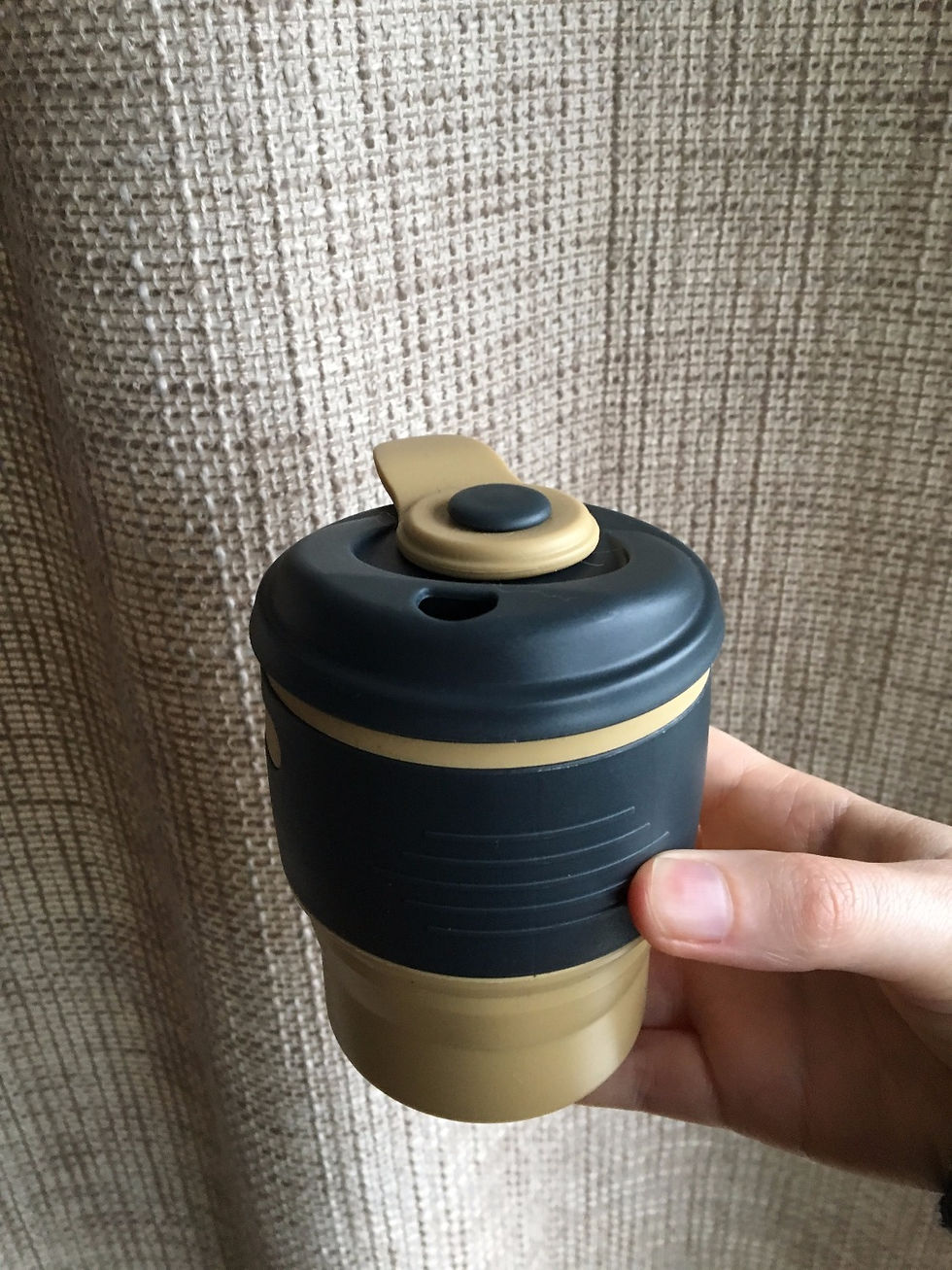Bea Johnson Talk
- Meagan Grimes

- Oct 1, 2017
- 4 min read
Bea Johnson, the zero-waste movement advocate, came to Cork on Sep 27th for a talk about her own zero waste journey. I left feeling inspired and even though most of the content was repeated in her ted talk I still took away a few new tips.

Pop-Up Market
I arrived at the talk early to take part in the pop up market that had been organised - I had wanted to get some keep cups that I had seen advertised, I am happy with my purchase however I found it a little annoying and ironic that they came in plastic wrap! I should have returned the packaging for re-use but didn't want to be too awkward (I will have to get better at this). Also slightly amusing was that the venue provided water in disposable plastic cups at a talk about zero waste haha.


Turn out
The turn out was very good, I was surprised by the range of people. There were people of all ages, from young professionals and parents to retirees. It was great to see.
Tips
Unconditional Lifetime Warranties
Some new tips I picked up were that there are some companies that provide unconditional lifetime warranties on their products. Even if you buy them second hand, they can be returned for repair or replacement. These products are:
JanSport backpacks
Darn tough socks
Briggs & Riley luggage
Davek umbrellas
These were just the ones that Bea mentioned but after a quick google search it looks like there are a number more here
I know which socks Colm is getting in his stocking this Christmas!
Irreplaceable Items
Another take-away from the talk that stuck with me was to ask yourself, if my home were to burn down with everything in it, what would I miss/be most upset to lose? For Bea it was family photographs which were the only irreplaceable item. I would have to agree, most of my photos are already in the cloud somewhere but although my wedding video is backed up on numerous hard drives - they are all in the one house so...single point of failure. I will need to back that up somewhere. Other than that, everything else is replaceable.
Looking at your belongings this way fits into the minimalism ethos too, only have things that bring you joy or are useful. Everything else is clutter that costs time or money to maintain, store or subconsciously weighs you down.
I'm looking forward to our next move as I will have the excuse to go through all our closets and declutter. The only problem I will have in moving into a bigger house will be to fight the temptation to fill it up!
Deoderant
Bea mentioned using Alum Stone deodorant. She has been using the same block for something like 8 years! Apparently they are good for sensitive skin, effective, and do not leave marks on clothing. I've had a quick look around and can't seem to find the stone on it's own in Ireland but can find them on amazon here. I will check with the Facebook group and see if any one has had luck locally.

Questions
Some of the questions at the end were (I should have jotted them down straight away as I can only remember a few now)
"How do you know which products are actually compostable?" (companies claim certain products are bio-degradable or compostable but only in specialised facilities)
"How did you get your kids on-board? - My kids are of the age where they want everything in the shops and want everything their friends have and it's getting harder to explain zero waste."
"How do you keep up with electronics?"
I will paraphrase the answers:
Compostables
Some companies say their products are 100% bio-degradable or compostable. For example bamboo toothbrushes and some plastic food waste bags. On the toothbrushes, while the bamboo is compostable, the bristles are not. Bea tested this by holding a lighter to them and they melted, compostable items will not melt. Bea dismantles the brushes when they are being disposed and puts the bristles in her waste jar for her talks. For the plastic based products, while they may actually be compostable - they are only compostable in specialised facilities where the environment is magnified and even then it can take 10 years to decompose in that environment. Best thing to do with those is avoid them or if you must use them, at least research to see if your local facilities can process these.
Zero-waste kids
Bea spoke about her kids and that they weren't even aware that they had gone zero waste or that they were any different from their friends. When the kids wanted something to fit in with the others she would get specifications from the kids ie: black v-neck name brand t-shirt. Bea would look in second hand shops and if she couldn't find it she would resort to ebay where she could find very specific things by filtering for "used" and asking the shipper to package in paper/cardboard. Her kids and their friends never knew the difference, and it was cheaper on the family budget. When her kids had friends over they were greeted with the same milk and cookies or other snacks, they just had been either made or bought without packaging. Kids needs are very basic and as long as they are being met they will take the lead from the person meeting those needs (the person managing the household spend)
Electronics
Bea's family has a basic list of electronics: Bea and Scott have smart phones, headphones and laptops (as they need them for work/travel) and the boys have tower computers, headphones and hand-me down phones. The tower computers are more customisable and parts can be swapped more easily for newer ones when they become outdated. As a first port of call these items are looked for second hand and they are repaired when they break rather than a straight replacement. In some scenarios it was unavoidable to buy new but that is few and far between. The family does not have lots of other electronics like scanners, printers, dvd players etc as they have found they are not needed.
That's all I can think of as my take-aways but I have since bought Bea's e-book and will continue to share things I discover as useful in there.
























Comments